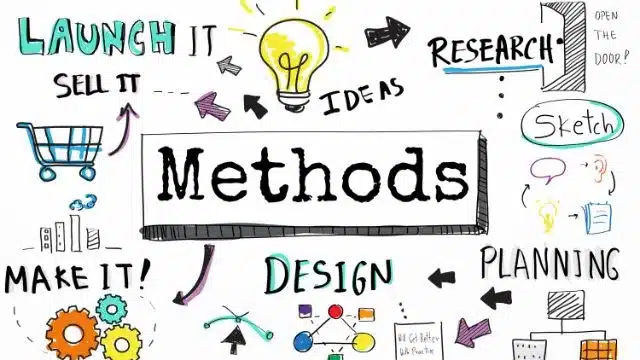Best Teaching Tips to Become a Successful Teacher?
Being the best and most successful teacher requires dedication, passion, and continuous learning. Teaching is a role that shapes the future generation. Becoming a successful teacher is essential for creating a positive impact on students’ lives.
This post will provide valuable insights, tips, and strategies on how to become a successful teacher. Whether you are a new teacher embarking on your career or an experienced educator looking to enhance your teaching skills.
This “How to Become a Successful Teacher” guide will offer practical advice to help you thrive in the classroom. Let’s Read
What Makes a Good and Successful Teacher?
Before delving into the specific best teaching strategies, let’s first understand the qualities and attributes that make a successful teacher:
✔️ Passion for Teaching: Successful teachers have a genuine and amazing passion for their profession. passionate Teachers always enjoy working with students.
The Teachers are enthusiastic about their subject matter and have a strong desire to make a difference in students’ lives.
✔️ Effective Communication Skills: Communication is at the core of teaching. Successful teachers can effectively convey information, they listen attentively and engage students in meaningful conversations.
✔️ Adaptability: Every classroom is unique, and successful teachers are adaptable. They can adjust their teaching methods to cater to different learning styles and accommodate the diverse needs of their students.
✔️ Subject Matter Expertise: A successful teacher possesses in-depth knowledge and understanding of their subject matter. They stay updated with the latest developments in their subject field to provide accurate and relevant information to their students.
✔️ Strong Classroom Management: Maintaining a well-disciplined and organized classroom environment is crucial. Successful teachers establish clear rules and expectations, manage time effectively, and create a positive learning atmosphere.
✔️ Continuous Professional Growth: Successful teachers are lifelong learners. They actively seek professional development opportunities, attend workshops, conferences, and engage in reflective practices to enhance teaching skills.
Improve Teaching Skills with 10 Simple Tips and Strategies.

Read 10 Essentials Skills Of A Good Teacher
Now that we have identified the key qualities of a successful teacher, let’s explore the actionable steps you can take to become one:
1. Acquire the Necessary Qualifications and Certifications
To embark on a teaching career, it is important to acquire the required qualifications and certifications. Obtain a bachelor’s and master’s degree in education or a relevant subject.
Also, consider pursuing a teaching credential or certification specific to your region or country. These qualifications will provide a strong foundation and equip you with essential teaching techniques and methodologies.
2. Build Strong Relationships with Students
Building strong relationships with your students is fundamental to becoming a successful teacher. Take the time to get to know each student individually.
Always show your genuine interest in their lives, and create a supportive and inclusive classroom environment for kids.
When students feel valued and understood, they are more likely to engage in the learning process and achieve academic success.
3. Develop Effective Lesson Plans
A well-structured and engaging lesson plan is a cornerstone of effective teaching. Take the time to carefully plan your lessons, considering the learning objectives, instructional strategies, and assessment methods.
Incorporate interactive activities, multimedia resources, and real-life examples to make the lessons more relatable and memorable for your students.
4. Utilize Differentiated Instruction
Every student has unique strengths, weaknesses, and learning styles. Successful teachers employ differentiated instruction techniques to cater to the diverse needs of their students.
Adapt your teaching methods, provide additional support or challenges, and offer alternative ways for students to demonstrate their understanding of the material.
5. Foster a Positive Classroom Environment
A positive classroom environment sets the stage for effective learning. Create a safe and respectful atmosphere where students feel comfortable expressing their opinions, taking risks, and collaborating with their peers.
Encourage a growth mindset, celebrate achievements, and address conflicts promptly and constructively.
6. Incorporate Technology and Innovative Teaching Tools
In today’s digital age, integrating technology into your teaching practices can greatly enhance student engagement and learning outcomes.
Explore educational apps, online resources, interactive whiteboards, and other innovative tools to create dynamic and interactive lessons. Embrace technology as a means to facilitate collaboration, research, and creativity within your classroom.
7. Encourage Critical Thinking and Problem-Solving Skills
The successful teacher fosters critical thinking and problem-solving skills in their students. Design activities and assignments that require students to analyze, evaluate, and apply knowledge to real-world scenarios.
Encourage open-ended discussions, debates, and project-based learning to develop their higher-order thinking abilities.
8. Continuously Assess and Provide Feedback
Regular assessment and timely feedback are vital for student growth and improvement. Implement various formative and summative assessment methods to gauge students’ understanding and progress.
Provide constructive feedback that highlights their strengths and offers suggestions for improvement. This helps students take ownership of their learning and make necessary adjustments.
9. Collaborate with Colleagues
Collaboration with fellow teachers is an excellent way to enhance your teaching skills and broaden your perspectives. Engage in professional learning communities, attend workshops, and participate in collaborative projects.
Share best practices, exchange ideas, and learn from the experiences of others. Collaborative efforts can lead to innovative teaching strategies and improved student outcomes.

10. Reflect on and Refine Your Teaching Practices
Self-reflection is a powerful tool for professional growth. Regularly reflect on your teaching practices, and assess what worked well and what could be improved.
Seek feedback from colleagues, students, and even parents to gain different insights. Use this feedback to refine your teaching methods and make continuous improvements to become a successful Teacher.
Frequently Asked Questions (FAQs)
How long does it take to become a successful teacher?
Becoming a successful teacher is a journey that requires continuous learning and growth. It varies for each individual, but with dedication and consistent effort, you can see progress in your teaching skills over time.
Is it necessary to have a teaching degree to be a successful teacher?
While a teaching degree provides essential knowledge and skills, it is not the sole determinant of success. Passion, effective communication, and continuous professional development also play crucial roles in becoming a successful teacher.
How can I handle difficult students and behaviour challenges?
Dealing with difficult students and behaviour challenges is a common concern for teachers. Establishing clear expectations, and implementing positive behaviour management strategies.
Fostering open communication with students and their parents can help address these challenges effectively.
What are some resources for professional development as a teacher?
There are numerous resources available for professional development as a teacher. Consider attending conferences, workshops, and webinars related to education.
Join online communities, read educational books and journals, and engage in reflective practices to enhance your teaching skills.
How can I maintain a work-life balance as a teacher?
Balancing your personal and professional life can be challenging as a teacher. Prioritize self-care, set boundaries, and delegate responsibilities when possible. Seek support from colleagues, friends, and family to ensure a healthy work-life balance.
What are the qualities of an effective teacher beyond subject knowledge?
In addition to subject knowledge, effective teachers possess qualities such as empathy, patience, adaptability, creativity, and the ability to motivate and inspire students.
Read These Too:
- 20+ Best Activities For Students In Summer Vacations
- 20 Side Hustles Ideas for Teachers to Earn More Money
- Tips for Effective Parent Teacher Conference Meetings
- How to Teach Moral Lessons to Students in Morning School Assembly
- How Can Teachers Use Twitter in the Classroom?
In conclusion, becoming a successful teacher is an ongoing process that demands dedication, passion and a commitment to continuous professional development.
By acquiring the necessary qualifications, building strong relationships with students, developing effective teaching strategies, and fostering a positive classroom environment, you can create an impactful learning experience for your students.
Remember, successful teaching goes beyond subject knowledge. It involves incorporating technology, encouraging critical thinking and problem-solving skills, continuously assessing student progress, and collaborating with colleagues.
Additionally, self-reflection and refinement of teaching practices are essential for personal growth and improvement.
CBSE Sample Papers | CBSE Circulars | Quizzes | Study Material
Join our Premium Telegram and Whatsapp Channel for More News and Updates.
For the Latest Educational News (CBSE, ICSE, and State Board News) and live news updates, like us on Facebook or follow us on Twitter and Join our Premium Telegram Channel. Read more on Latest Exams & Results News on Shikshapress.com.


1 thought on “How to Become a Successful Teacher”